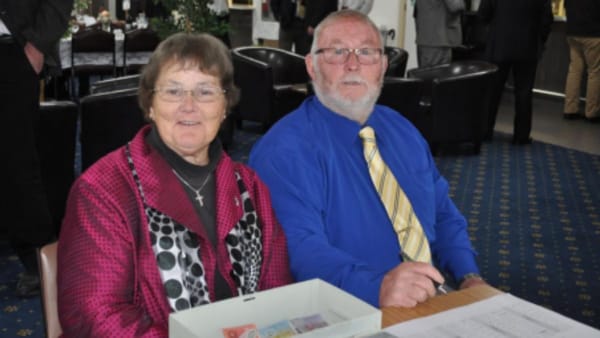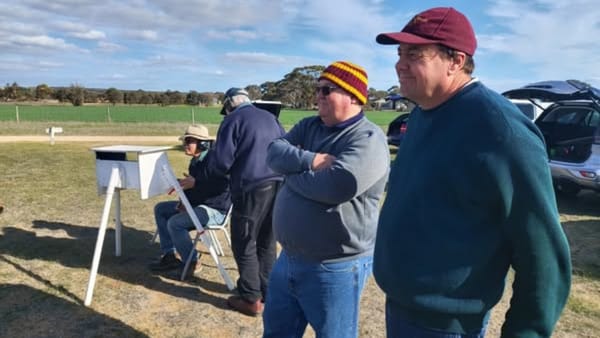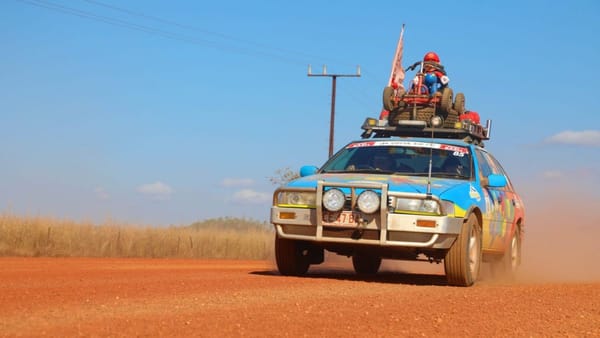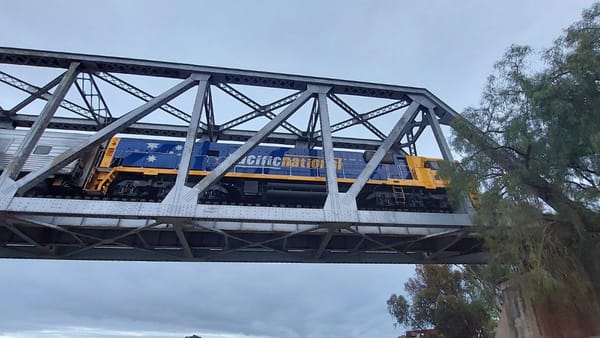Women of the LMRIA: Meet Murray Bridge's Kathryn Rothe
She's gained a passion for supporting her local community from growing up rurally.
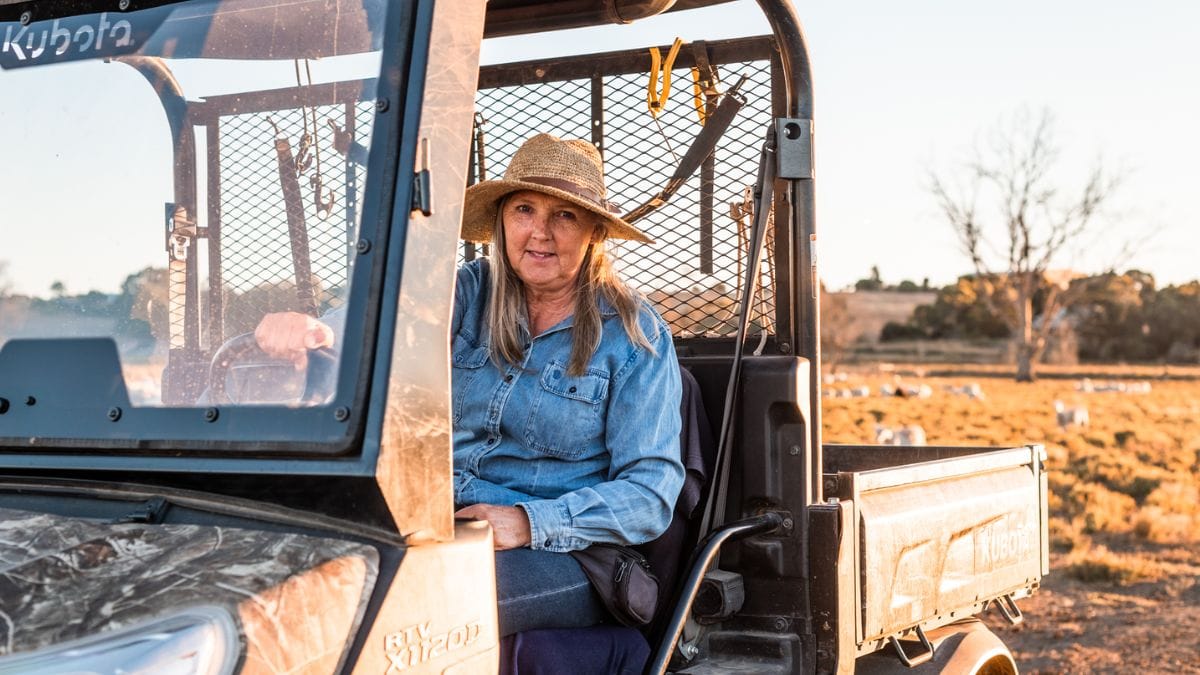
This post was contributed by Ellie Rankin.
The Lower Murray Reclaimed Irrigation Area (LMRIA) spans a stretch from Mannum to Wellington where you’ll find a mix of farming, including cropping, dairy, hay production and livestock.
In 2022, when the River Murray floods hit, farmers were confronted with difficult decisions: selling off their livestock, relocating them to higher ground, or arranging for agistment elsewhere, while watching their crops be destroyed by the rising water.
In the wake of these challenges, the women of the LMRIA came together and created a group to give each other support, all connected by their ties to farming along the Murray River.
Among them is Kathryn Rothe.
In the 2022/23 floods Ms Rothe was forced to sell her cattle after flood water engulfed her land.

Can you tell me a bit about yourself, your background and where you grew up?
Living on the land, working the land, respecting the land is in my blood, in my DNA.
As I say to all my friends and foe “I live and breath the land everyday.”
Farming has been in my family for generations.
Milking cows, making hay, and digging potatoes to make ends meet made my world a very busy one.
It gave me a solid foundation to work hard, love the land and animals, and believe that you will survive.
Attending a small school with two teachers and integrated classes was fantastic.
It allowed me to grow independently and strive to be better.
Many things happened when I was young, but I remember my parents planting trees instead of cutting them down and being thrown into the dam to learn how to swim.
Walking to school in bare feet to keep my shoes shiny for assembly, loving my pets and our animals, and singing to them when I brought the cows in made me develop deep respect.
However, I also saw the hard times, like eating dripping for tea and feeling cold in bed, which made me think for myself and try harder, be better, think smarter, and not complain but fix things!
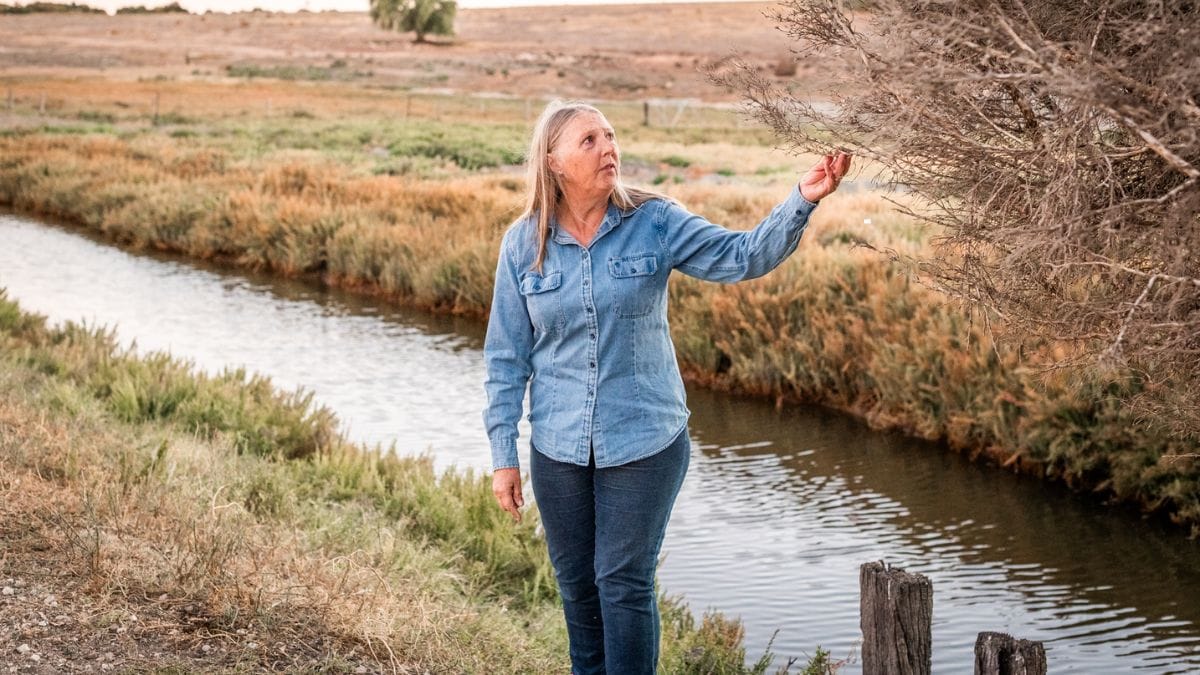
What led you to your current path?
My forefathers and foremothers made the decision to come to Australia back in the early 1800s.
They were persecuted, murdered, and driven out due to their beliefs.
Like most cultures, none of us are immune to the dark history of the past.
But they called Australia home and worked hard so the rest of us could have a good life.
To those who struggle today with what has happened in the past, I say: do something about it.
Become a community person.
Stand up when you see something is not right.
I have volunteered for multiple events, coached netball and cricket, attended numerous meetings, taught Sunday school, worked with youth, and so much more.
Be responsible – buy local, use local businesses, buy some land and plant your own trees.
We can all do it! Live your life like it matters.
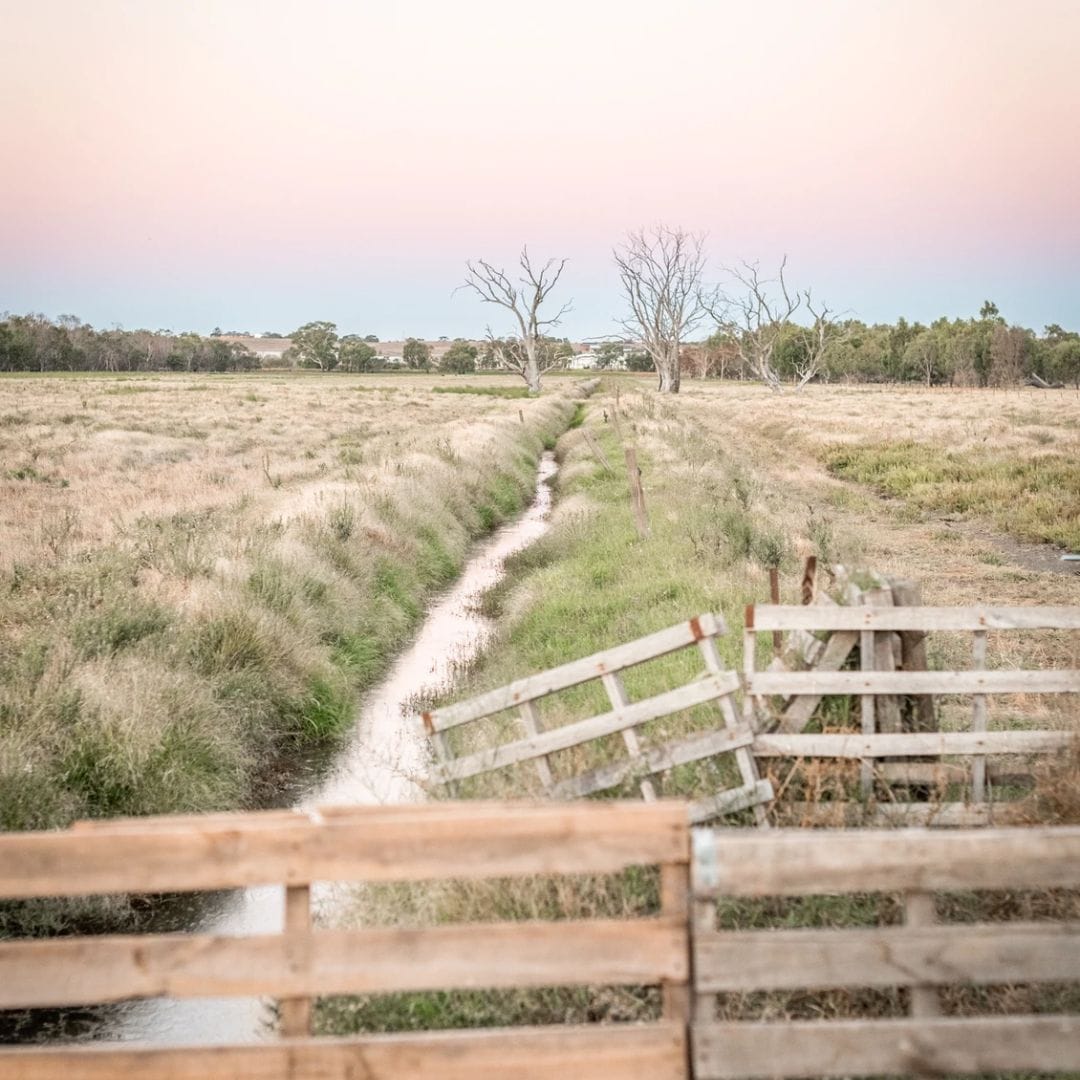
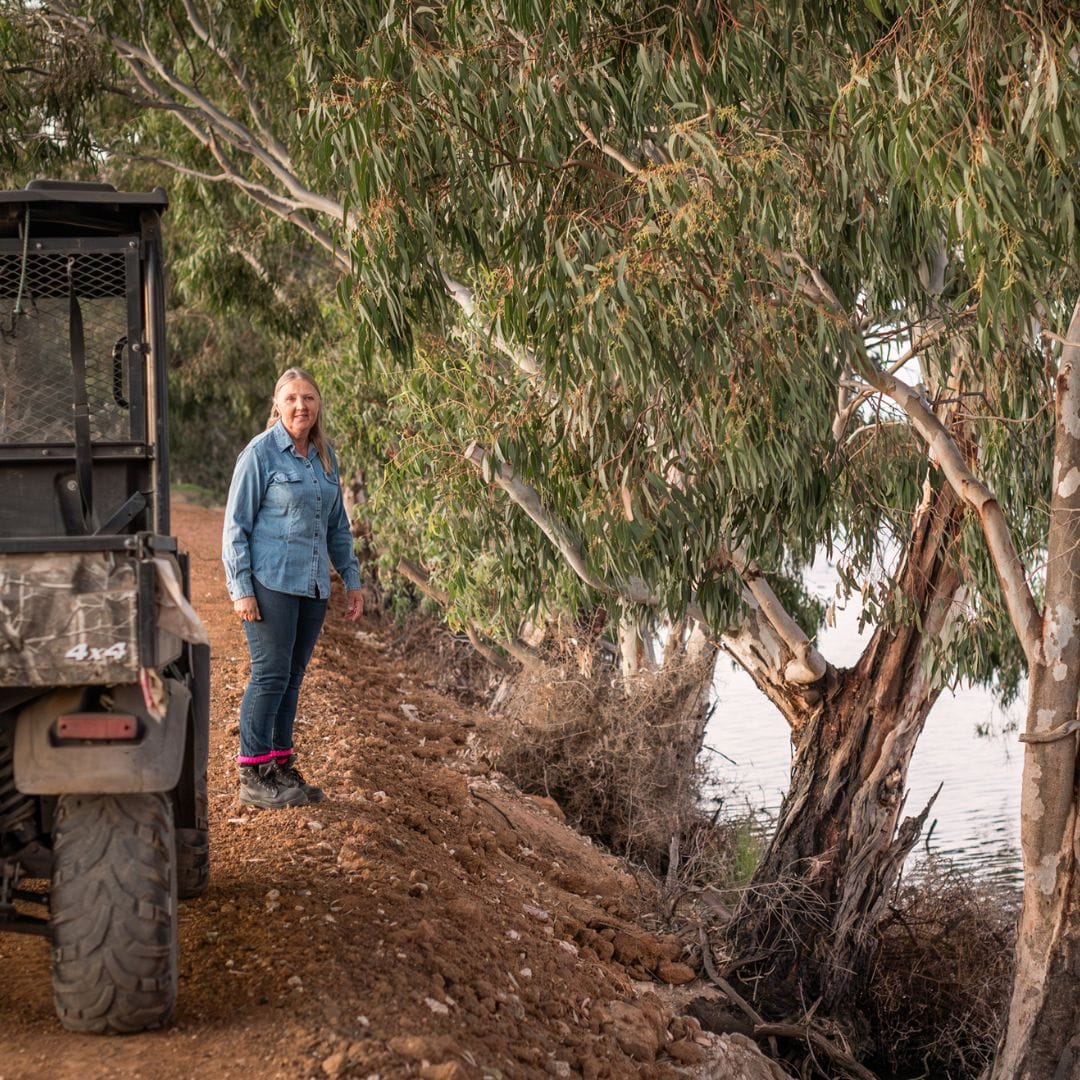
Some of the trees were affected by the floods and died, the makeshift fences were built to keep livestock in designated paddocks until they could repair the damage. Photo: Ellie Jade Photography
How do you handle stress or difficult times in your life? What have you overcome?
As a farmer, you will always face hard times.
You will always get knocked down.
You will be told you are resilient and just get on with it.
If I had my time again, I would stand up more and speak my mind more.
Farming is not for the faint-hearted.
The struggles are hard.
Losing animals, droughts, and floods are challenges farmers can deal with.
But the greed of big supermarkets has finished off many good farmers.
I struggle with how big corporate farms can just move in, take large amounts of water, and treat animals like numbers.
This is not in my DNA.
I struggle with government departments that have lost the ability to see issues months, if not years, in advance and blame money.
They have forgotten those who live and breathe the land and are left out of decision-making.
To help me get through the years, I decided to do something about it, and I'm glad to say I did.
Getting married to a farmer, having a family, and bringing them up to be community-minded, loving the land and environment, and having a strong work ethic has been essential.
We have planted tens of thousands of trees, bushes, and seedlings on our properties, and we are part owners of a pristine wetland.
Drawing on my family, friends, and belief in God has helped me pull through the very hard times.



Kathryn and her husband run a sheep and cattle farm. Photo: Ellie Jade Photography
Can you share a memorable moment or achievement in your journey that has been particularly meaningful to you?
Farming is in my blood but I became the project manager for the Mannum to Wellington Local Action Planning group due to the misinformed information about farming that was out there.
Many of my students, government departments etc. had very little contact with the land and family farming.
At first it was hard to attend some of these meetings to hear what they were saying about farmers but you must get involved, you must put yourself out there.
You only get one chance in life so stand up.
What is your favourite thing about being a rural woman?
Being a rural woman makes me feel very proud when I talk about the good and bad times to my peers.
I know I can handle both the outside and inside work.
I can make a meal out of almost nothing from the garden.
Being practical and fixing issues seem to come easily when you have been brought up positively.
Recycle, reuse, buy second-hand, and go on holidays—even for a weekend—just make it happen.
My mother was amazing and had many battles, but she persevered.
She sacrificed a lot and gave us hope.
She also had the strength and courage to stand up to burdens.
I remember one Sunday morning, driving to church after milking and doing the farm chores, thinking, when I get old, I can sit in my rocking chair and say I lived a full life.
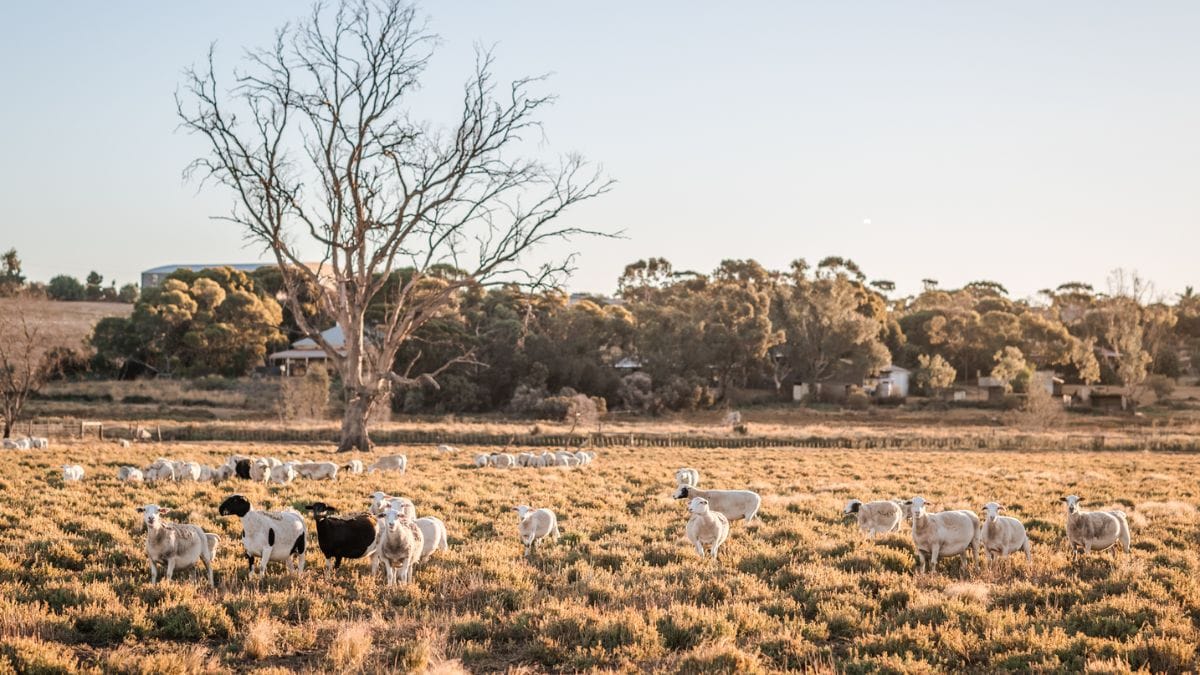
What are your perspectives regarding the involvement of women in the rural industry?
I have never been afraid to put my hand up.
However, over the years, I have learned that people will take advantage of that, so I wish I had been stronger and more outspoken.
Women need to stand up more, but it always comes with a sacrifice.
We can't do it all, and if someone tells you otherwise, I believe you will struggle.
Yes, it is a juggling act.
Family farming is not easy, and if you want a family of your own and get involved in the industry, something has to give.
Pick your battles and deal with them.
If there is a path you want to follow, talk it through.
Look at the next five, ten, fifteen years.
I am proud to say that when I was able to run meetings on issues in our area I would invite government departments.
The boating industry, environmentalist groups, townspeople, tourism groups, etc., to get a handle on their positions.
I believe rural women have a compassion that can make things work.
Become conscious of what is going on in your area.
One of my sayings is, "I can't change the world, but I can change my world and yours if we understand each other."
Make conscious decisions and make it happen.

